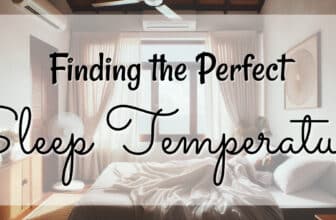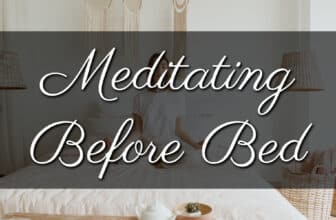Is it good to nap after a workout? The answer depends on a few variables that are specific to you and your regular sleep habits. Do you normally fall asleep fast? Do you have problems falling asleep? What kind of workouts do you usually participate in? How does napping after working out affect weight loss or weight gain? Let’s find out why some individuals view it as good while others view it as bad. You may also discover what’s the best choice for yourself.
Do You Have Trouble Falling Asleep?
Whether or not it is bad to sleep after working out depends on your individual needs. For example, do you have trouble falling asleep on a normal basis? If so, you should definitely take this into consideration. Looking back on our discussion about sleeping after eating, it was stated that your last meal is recommended to be a few hours before bed, especially if it is a heavy meal like protein. This also holds true with taking naps after a workout. It is generally recommended to do intense physical activities a few hours to even as much as five hours before bed as these activities could contribute to keeping you awake. This is particularly important if you have problems falling asleep. However, if you generally do not have any such issues, working out before bed could have little to no side effects.
Is It Hard to Find the Time to Workout?
Another important factor to consider when contemplating a workout near bedtime is the density of your daily personal schedule. Maybe you are one of the many people out there who has trouble finding time to fit a workout into your schedule and before bed is the only logical time. If so, we recommend squeezing it in any time you possibly can so you can experience the benefits of working out, even if it is right before bedtime.
Types of Exercises
The type of exercise also has an effect on your post-workout energy level. Some are more likely to leave you feeling invigorated when you are finished, and others are more likely to leave you feeling tired after a workout.
Let’s explore the three main types of exercises so we can have a better understanding of what they are, and why they affect your energy levels differently.
1. Aerobic Exercises
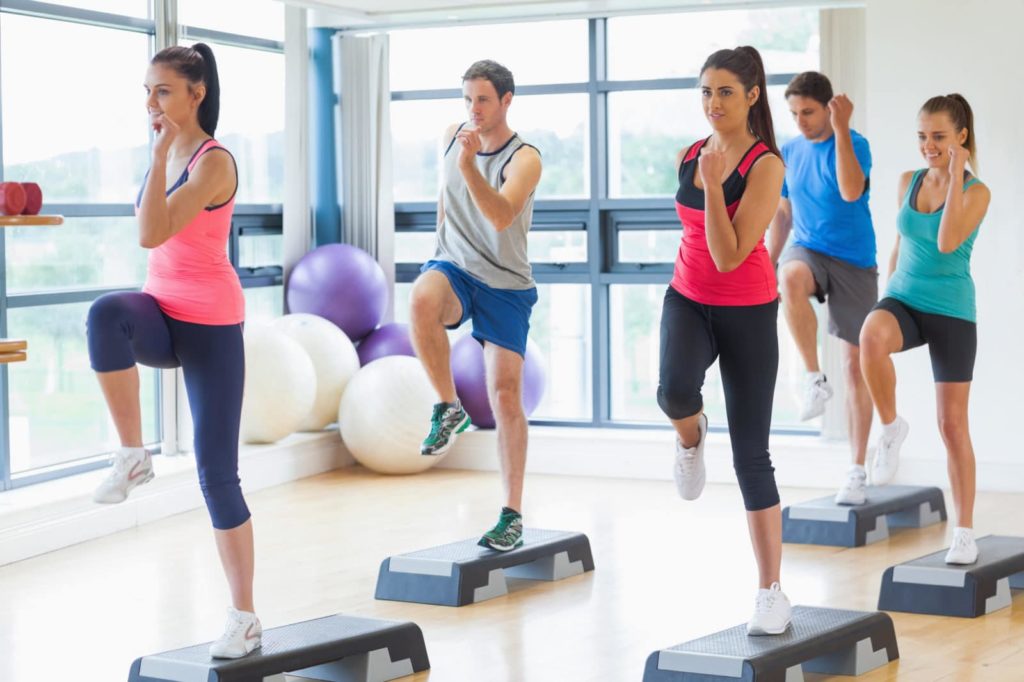
This is the type of exercise that most people do when they are trying to lose weight because they generally view this as having the most results in the quickest time. Aerobic exercises utilize your large muscles the most. Extended aerobic exercise increases your heart rate. Most health professionals recommend raising your heart rate for a minimum of 20 minutes at a time, three to four times a week, to increase the endurance of your cardiovascular muscles and promote heart health overall. Examples of aerobic exercises include power walking, jogging or running, playing basketball, playing tennis, cycling, climbing stairs, hiking, and many more.
2. Anaerobic Exercises
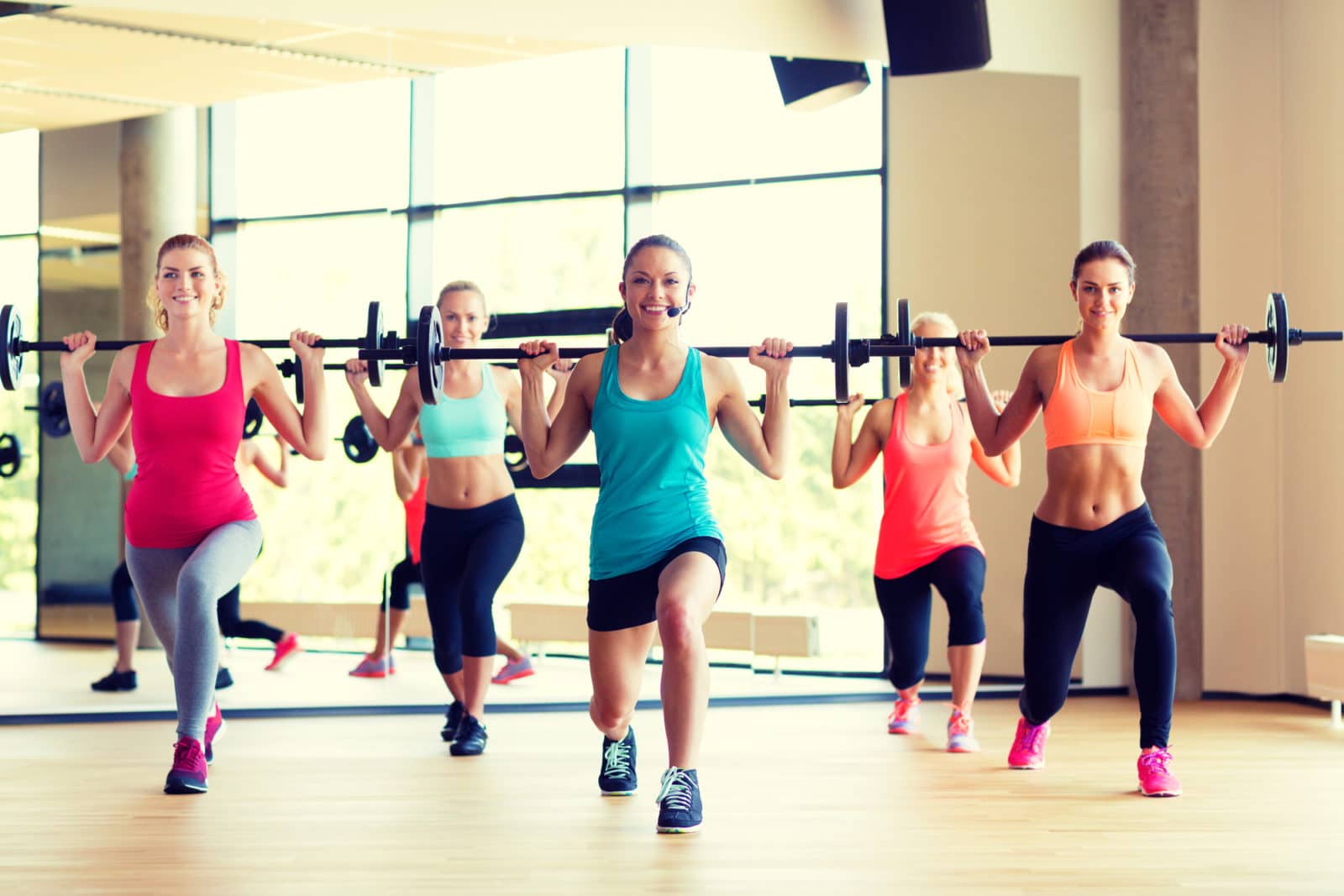
This is the type of exercise that strengthens your bones as well as firms and tones your muscles. To build muscles, it usually means eating a high protein diet along with resistance and strength training. These exercises can also improve your coordination and balance overall, making it an important part of working out. Some examples include weight training, pull-ups, lunges, push-ups, crunches, sprinting, high-intensity interval training, and many more.
3. Flexibility Exercises
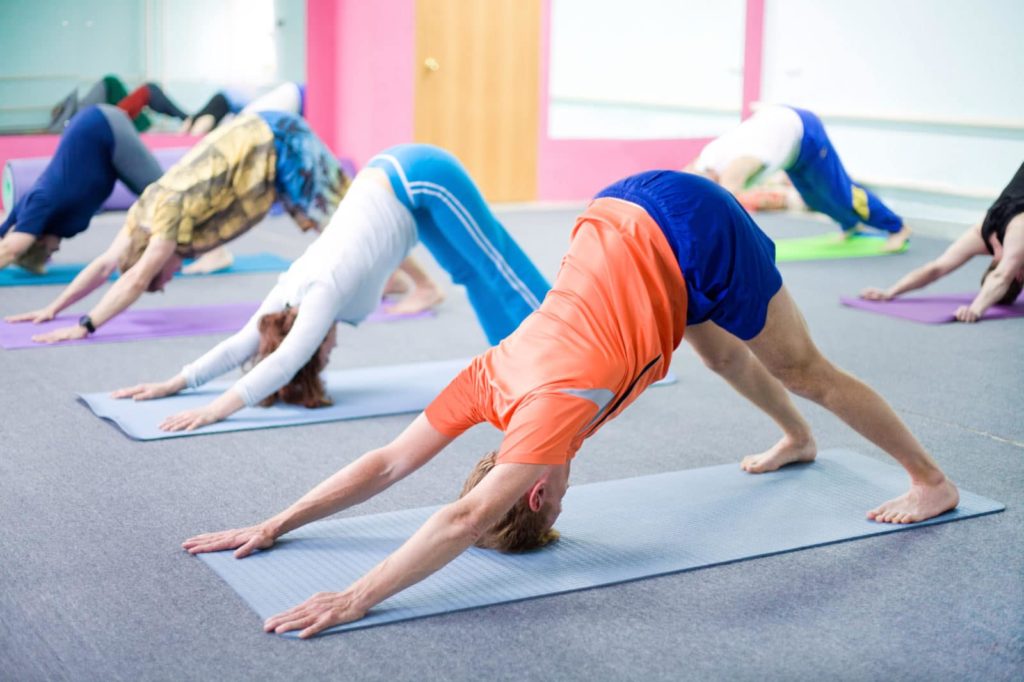
This type of exercise strengthens your muscles while lengthening and stretching them. As I am sure you have guessed, flexibility exercises increase flexibility and overall muscle suppleness. This is an important part of working out as it prolongs the usage of your muscles while also promoting recovery and endurance in the long run. Some examples include yoga, Pilates, warm-up stretching, post-workout cooldown, and many more.
How Do You Feel After a Workout?
Why do some people feel invigorated while others feel sleepy after working out? This all largely depends on the type of exercise you do.
You should feel energetic and healthy after a good night's sleep or after a good workout. Take the time to listen and interpret the constant messages your body is sending you so that you can take care of it responsibly.#Business #leadership pic.twitter.com/dtaVHE4wVY
— Mari Carmen Pizarro (@MariCPizarro) August 21, 2019
Feeling Invigorated
For example, if you do flexibility exercises, the possibility of you feeling sleepy afterward is very slim. The chances increase with anaerobic and aerobic exercises, but even with these two types, it is still common to experience feeling refreshed and awake after a workout.
Feeling Sleepy
The desire to nap after a workout is largely seen in three types of people who workout. First are the athletes, next are those who do extremely rigorous workouts, and lastly, are those who train for a marathon or any other kind of extreme workout. They are the most likely to be sleepy after exercise. When you force yourself to perform at this type of high level, it is very common to be exhausted afterward. This is because exercise causes your muscles to release two different cytokines which make you drowsy and prolong the time you sleep overall.
Naps After Working Out
Let’s explore some general guidelines that will help you decide if it is best for you and your lifestyle.
1. The Pros and Cons
Whether naps after your exercise are good or bad for you depends on a lot of different aspects. Here are some things to keep in mind.
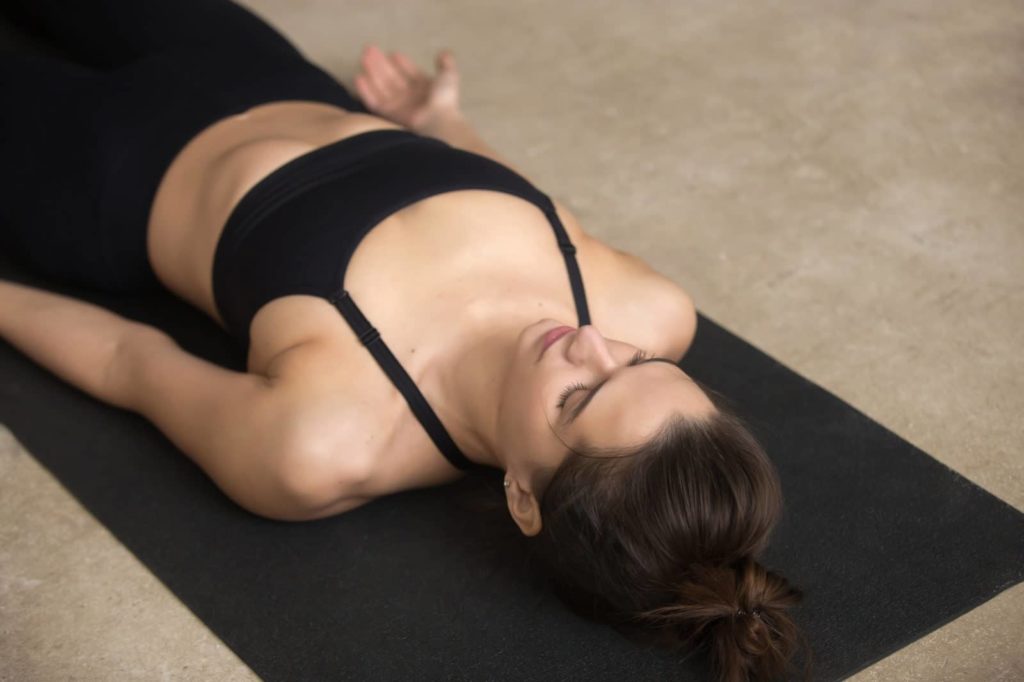
Pros:
- Muscle and tissue repair. One of the main benefits of napping after a workout is that it allows your body to focus on repairing the muscles and tissues you used during the workout. Allowing yourself a recovery period, i.e., taking naps, helps restore your muscles to their new, stronger state quicker and more efficiently.
- Recovery from energy expenditure. Those who work out regularly need more sleep than those who do not. The use of energy when building strength takes a toll on the body. Naps are beneficial for many reasons, but if you exercise regularly, you may require more sleep and may need to maintain it as a habit. Another reason why taking naps after a workout can be beneficial is that it can help get you the extra sleep you need, especially if you slept late the night before.
Cons:
- The workout may be too intense. If you are feeling very sleepy after working out, then the routine might be too much for you. It may be good to consider doing less next time. There is no need to push yourself to such extremes on a regular basis unless you are training for something intense because it could very likely lead to injury. Try taking it a bit easier at the beginning rather than relying on naps to come back to a normal energy level every time you exercise.
- You may be suffering from complete exhaustion. Experiencing this could signal something other than the need for naps. It could be alerting you to the need for getting better nutrition to fuel your bursts of energy. Additionally, it could also be warning you of potential injury. Listen to your body first and don’t push so hard you get hurt.
- The release of Cortisol stops you from sleeping. It is the body’s main stress hormone and it can affect your sleep. When you do aerobic exercise, Cortisol is released and it may make taking a nap seem impossible for you. If this is the case, you may want to spend some of your recovery time relaxing and hydrating so you can sleep well at night instead of trying to force a nap.
2. Naps After a Workout and Insomnia
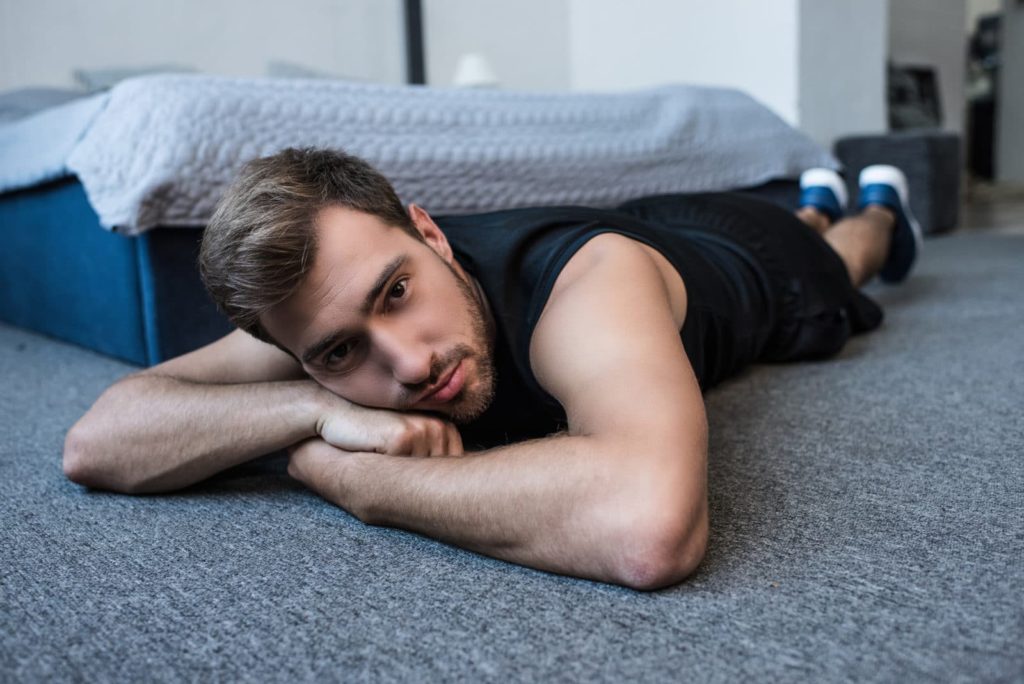
From the point of view of some, exercise can help reduce symptoms of different types of insomnia. It is often recommended for people with insomnia as a way to help alleviate symptoms. Regular exercise can promote sleepiness in those with insomnia because it helps to use up stored energy, relieve stress and tension, and can even encourage a healthier and regular circadian rhythm. Your circadian rhythm regulates your sleep-wake cycles throughout the day. A boost in body temperature caused by working out followed by a decrease in temperature post-workout helps to not only keep your circadian rhythm in check, but it also helps make you more sleepy so you can more easily fall asleep at night.
If you have insomnia, you will want to experiment a little with the intensity and the time of day you choose to workout. Some may need to do it at least five hours before trying to fall asleep, while others may benefit from working out closer to bedtime. However, regularity is the key factor. The more often you workout, the better results you will see when it comes to encouraging sleep.
In another point of view, those with insomnia should not take naps throughout the day as it will discourage sleeping at night. Taking naps after exercise is not recommended for insomniacs who work out earlier in the day.
3. Taking a Nap After a Workout and Weight Loss
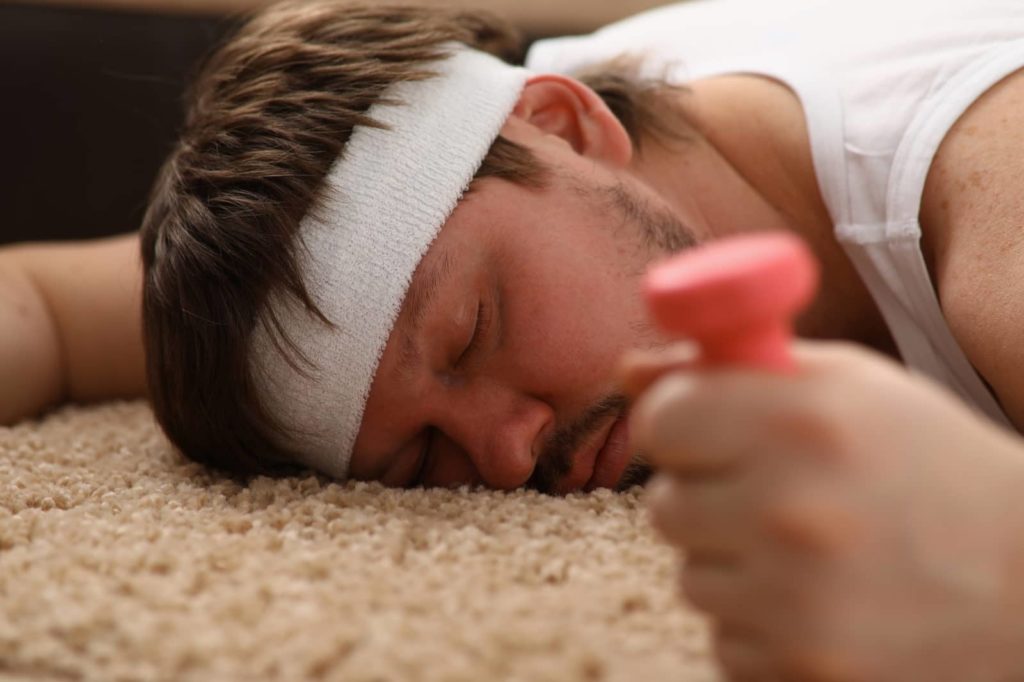
Does taking naps after working out affect weight loss in a positive or negative way? When it comes to weight loss and taking a nap after a workout, there are conflicting theories. There are some that view it as being good for you, while others believe staying awake and continuing to move around is just as good, if not better when it comes to considering weight loss.
What we do know for sure is that working out builds muscle mass and the more muscle mass you have, the faster your metabolism will function. We also know that a faster metabolism burns more calories and fat.
So, working out definitely helps you lose weight but how do naps factor into your metabolism? Many people don’t know that their body burns fat when they are awake and asleep. A few studies suggest that your body burns even more fat while you are sleeping because it can be more efficient since it’s not diverting energy to other waking functions. Some say you can burn fat up to twice as fast while you are asleep. However, as we mentioned above, some studies also suggest that staying minimally active after working out could be just as beneficial, if not more.
Sleeping after working out may boost weight loss, but skipping the nap and staying active may boost weight loss just as well. Try each point of view and see what works best for you but remember, sleeping well on a regular basis is better for your metabolism than relying on a nap after a workout.
Let’s Review
We have learned many things today. There are a lot of aspects to consider when determining whether a post-workout nap is positive or negative for you.
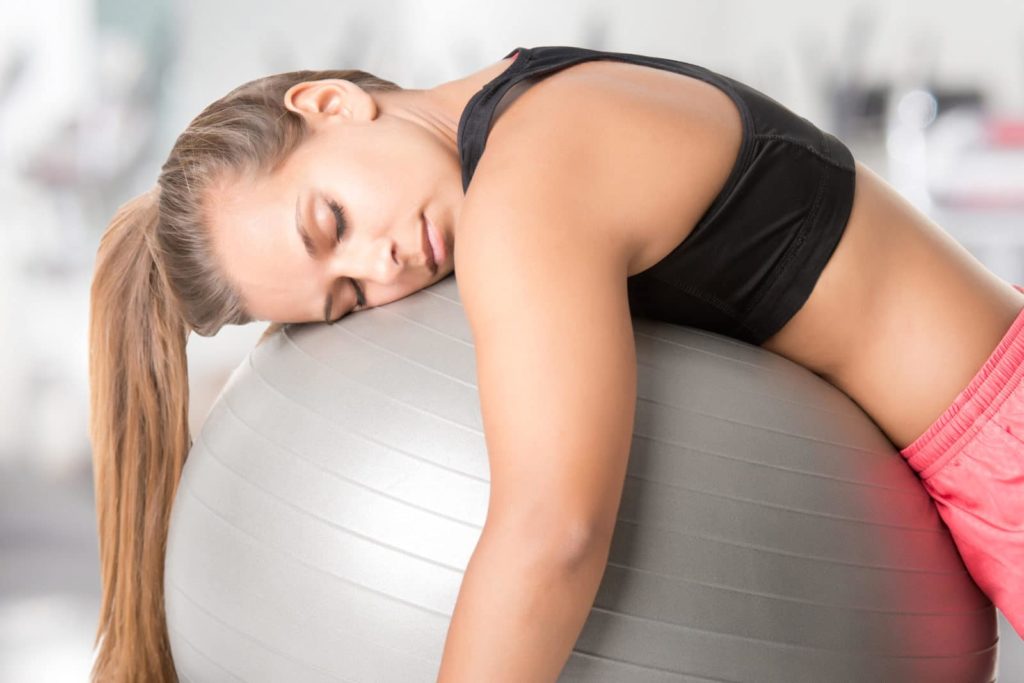
There are three main types of exercises: aerobic, anaerobic, and flexibility. The type you choose to do will affect you differently when it comes to the desire to sleep afterwards. It will also affect how tired you are at night in a different way. Those who do vigorous aerobic workouts are more likely to experience feeling tired after, while those who focus on flexibility will most likely not experience feeling exhaustion to the point of wanting a nap.
Taking a quick nap after a workout can boost your overall sleep time, something needed if you exercise regularly. It can also help encourage muscle and tissue repair in the body parts used during your workout.
Complete exhaustion after working out could be a sign that you are doing too much. If you encounter this regularly, you may want to try doing slightly less and see how this affects your overall sleep quality and weight loss in the long run.
Regular exercise often helps insomniacs sleep better at night. On the other hand, taking naps after working out, especially if it is earlier in the day, is not recommended for insomniacs or those who have trouble falling asleep at night. The nap will most likely leave them feeling more awake at night, thereby decreasing the overall sleep quality, which is more important.
Your body burns fat while you are asleep and taking naps after a workout could jumpstart this process. Staying awake and continuing to be active also boosts the fat-burning process. Either way, regular sleep is more important for increasing metabolism and burning fat than depending on naps to make up the difference.
What Will Benefit You the Most?
In conclusion, taking a nap after a workout affects different individuals differently. Explore the variables and factors that are relevant to you and your particular needs to ensure you make the best decision while prioritizing your overall sleep quality above all else.
Additional Resources
- Biphasic Sleep And Polyphasic Sleep
- Benefits Of Sleeping Naked
- Essential Oils For Sleep
- How Much Sleep Do Teens Need




